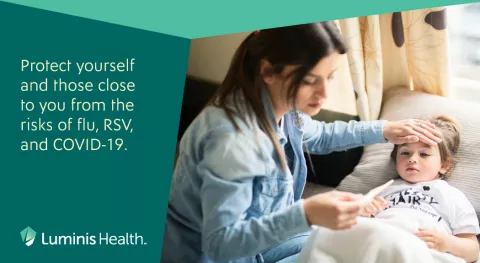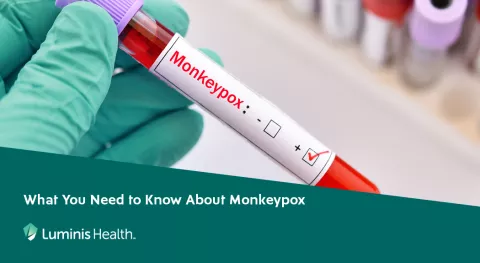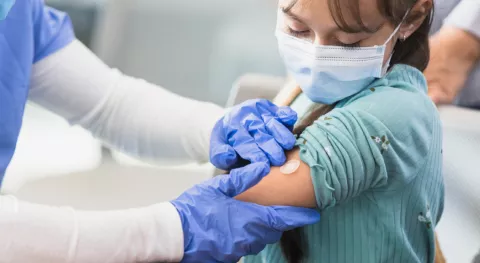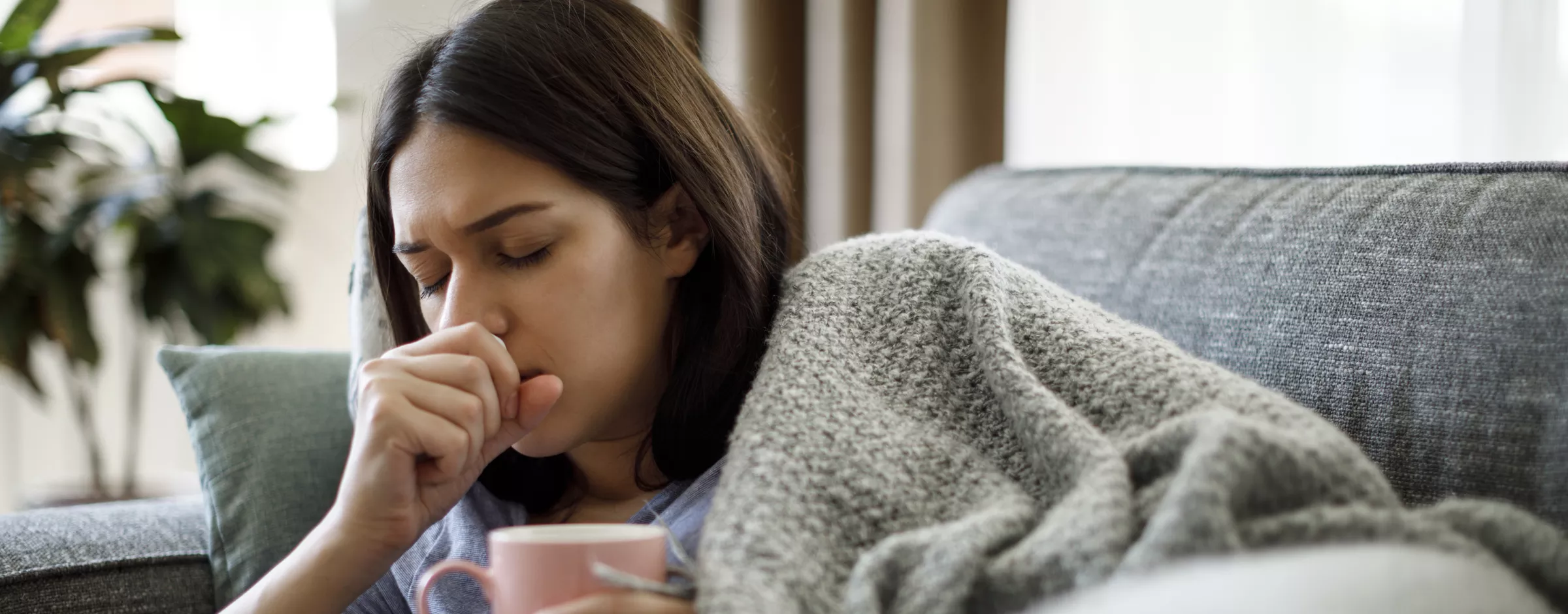
Answers to some commonly asked questions
Updated on January 10, 2022
Many of us miss the days when a sore throat was just a sore throat. In the current environment, a sore throat or other symptoms can lead to several questions. Should you take a test, or call a provider? Barry Meisenberg, MD, chair of the Department of Medicine and Chief Academic Officer at Luminis Health Anne Arundel Medical Center, answers several frequently asked questions below regarding symptoms, testing, and what to do if you feel sick.
- What are the symptoms of the new Omicron variant?
Although symptoms vary by person, the most common are fever, fatigue, sore throat, cough, headache, and body aches. You may experience loss of smell or taste, but this does not occur as often, compared to previous variants of the virus.
- Should I go to the emergency room (ER) for a COVID test?
No, the emergency room is not a testing site. Only go to the ER if you have severe pain, severe illness or life-threatening conditions. ERs are experiencing high volumes and delays can be expected. Better alternatives for urgent medical care (COVID-19-related or not), include your physician’s patient portal or urgent care sites for any condition that is not life-threatening or severe.
- Should I contact my doctor if I feel sick or test positive for COVID-19?
You should contact your primary care provider if your symptoms become severe, you have difficulty breathing, you have other complicating medical conditions, you are experiencing high or low blood sugars as a diabetic, or you have a significantly or sustained high fever. Visit the Maryland Department of Health website for COVID-19 testing information.
- What should I do if I test positive for COVID-19?
If you have mild to moderate symptoms, recover at home (with at least five days of quarantine and until you are symptom-free for 24 hours). Take acetaminophen (generic brand, Tylenol) for fever and aches, drink plenty of fluids, and get plenty of rest. If your symptoms are severe or you are considered high-risk due to other medical conditions, or you are immunocompromised, call your primary care provider for more personalized care guidance.
- What should I do if I have been exposed (without a mask for more than 15 minutes) to someone who has tested positive, but I feel fine and have no symptoms?
If you can find a home test, take a test to confirm if you are positive or negative. Testing too early may give a false negative. Since tests are in short supply, wait at least three days if you are still symptom-free before taking a test. If you cannot find a home test and have no symptoms, wear a mask at all times outside of your home. Limit yourself to only essential contacts and interactions for five days.
- What should I do if I have been exposed (without a mask for more than 15 minutes) to someone who has tested positive, and I do have symptoms?
Get tested at a county, retail or physician location. Isolate for at least five days and until you are symptom-free for at least 24 hours. Learn more about the Centers for Disease Control and Prevention recommendations here.
- I have received COVID-19 antibodies either from monoclonal antibody treatment or previous COVID-19 infection – aren’t I already protected?
No, you are not. Monoclonal antibody treatment is currently on pause because the antibodies are not effective in guarding against the Omicron variant. The Omicron variant is now the prevailing variant infecting our state.
- What about the new COVID-19 pills? Can I take those and where can I get them?
Currently, two COVID-19 pills (Merck drug, Molnupiravir for patients 18 and older, and Pfizer drug, Paxlovid authorized for patients 12 and older) have received Emergency Use Authorization, although they are in very short supply. You can find them at some retail stores and healthcare locations. These treatments require a physician’s order, and they are only used for high-risk patients with complicating or underlying medical conditions. They must be taken within five days of a symptom onset. If you have questions regarding availability and use of COVID-19 oral antiviral medications, click here.
- If I have tested positive for COVID-19, do I need a re-test to return to work or other activities?
The guidance on this has changed as more information has become available and test availability has decreased. The RT-PCR (RNA test) can stay positive in your nose for up to three months as a remnant. It does not indicate contagiousness or persistent infection. A follow up PCR therefore reveals nothing about your status, so do not re-test with PCR. The rapid antigen test has previously been recommended to determine “viral clearance,” but new science indicates that the quarantine period can be limited to five days from onset of symptoms (followed by five days of rigorous mask wearing) without the necessity for a repeat test for most people. If you are immunocompromised, you should consult with your primary care provider.
- What treatments are available for mild to moderate COVID-19?
Monoclonal antibodies can make some patients feel better faster and prevent hospital admissions. Unfortunately, the Omicron variant is resistant to the most commonly used antibodies and as of now, they are not being used.
One antibody remains in use but it is in very short supply, so referring physicians and infusion centers are being asked to reserve it for the highest-risk patients.
Two new oral drugs requiring a prescription are now available, Molnupiravir and Paxlovid. They are available through a narrow network of retail pharmacies, and more information on availability can be found here. Because they are in short supply, physicians are being asked to reserve prescription for those at highest risk of a hospitalization. The National Institute of Health has a guideline on high- risk status here.
- What else do I need to know?
Get vaccinated and boosted. It remains the BEST option for preventing and/or reducing the severity of COVID-19 variants.
- Where can I find the latest information from Luminis Health?
Please visit the Luminis Health Facebook, Twitter and LinkedIn pages for the most up-to-date information.
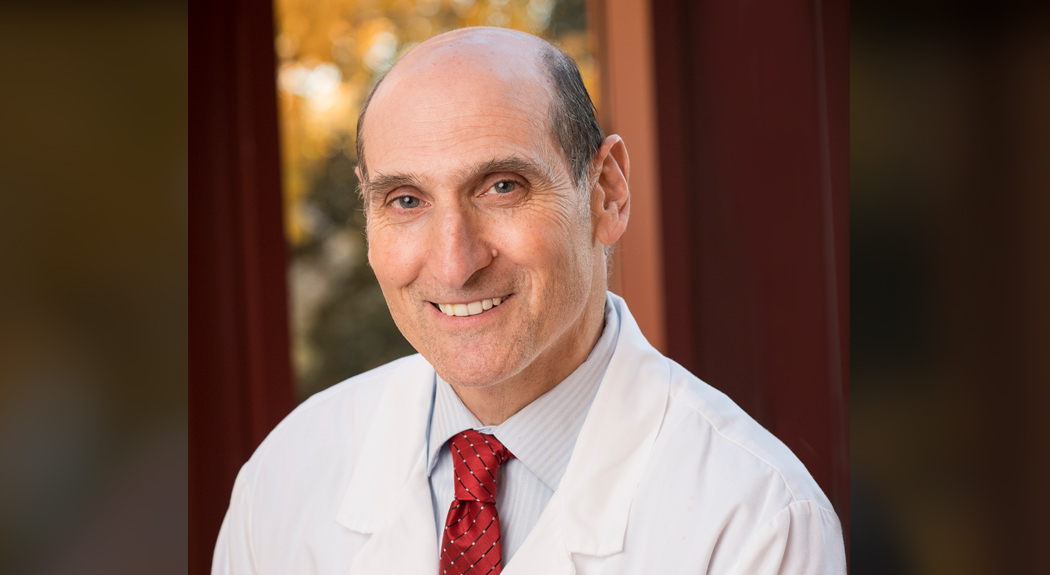
Barry Meisenberg, MD, is the chair of the Department of Medicine and Chief Academic Officer at Luminis Health Anne Arundel Medical Center.
